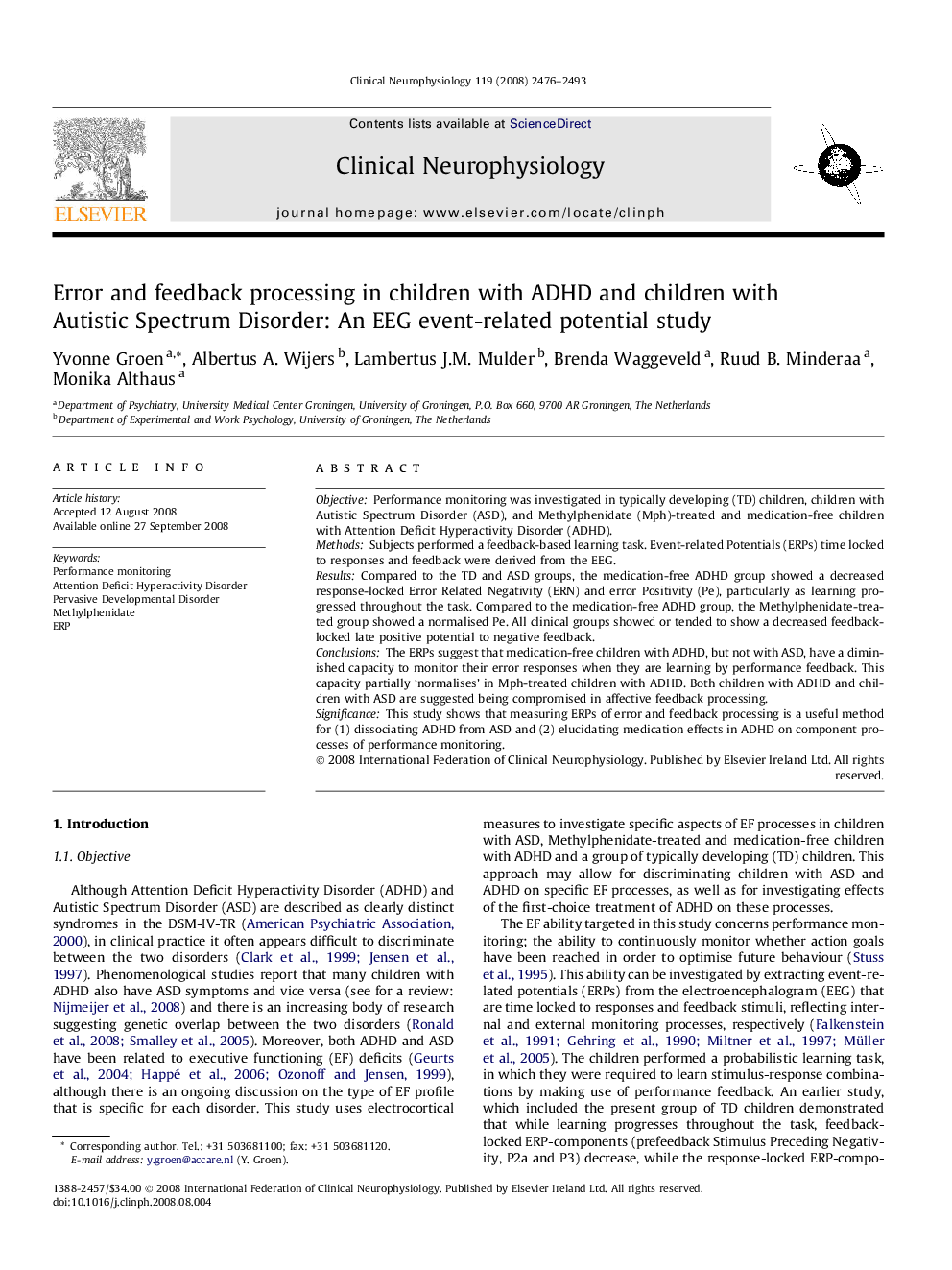| Article ID | Journal | Published Year | Pages | File Type |
|---|---|---|---|---|
| 3047007 | Clinical Neurophysiology | 2008 | 18 Pages |
ObjectivePerformance monitoring was investigated in typically developing (TD) children, children with Autistic Spectrum Disorder (ASD), and Methylphenidate (Mph)-treated and medication-free children with Attention Deficit Hyperactivity Disorder (ADHD).MethodsSubjects performed a feedback-based learning task. Event-related Potentials (ERPs) time locked to responses and feedback were derived from the EEG.ResultsCompared to the TD and ASD groups, the medication-free ADHD group showed a decreased response-locked Error Related Negativity (ERN) and error Positivity (Pe), particularly as learning progressed throughout the task. Compared to the medication-free ADHD group, the Methylphenidate-treated group showed a normalised Pe. All clinical groups showed or tended to show a decreased feedback-locked late positive potential to negative feedback.ConclusionsThe ERPs suggest that medication-free children with ADHD, but not with ASD, have a diminished capacity to monitor their error responses when they are learning by performance feedback. This capacity partially ‘normalises’ in Mph-treated children with ADHD. Both children with ADHD and children with ASD are suggested being compromised in affective feedback processing.SignificanceThis study shows that measuring ERPs of error and feedback processing is a useful method for (1) dissociating ADHD from ASD and (2) elucidating medication effects in ADHD on component processes of performance monitoring.
